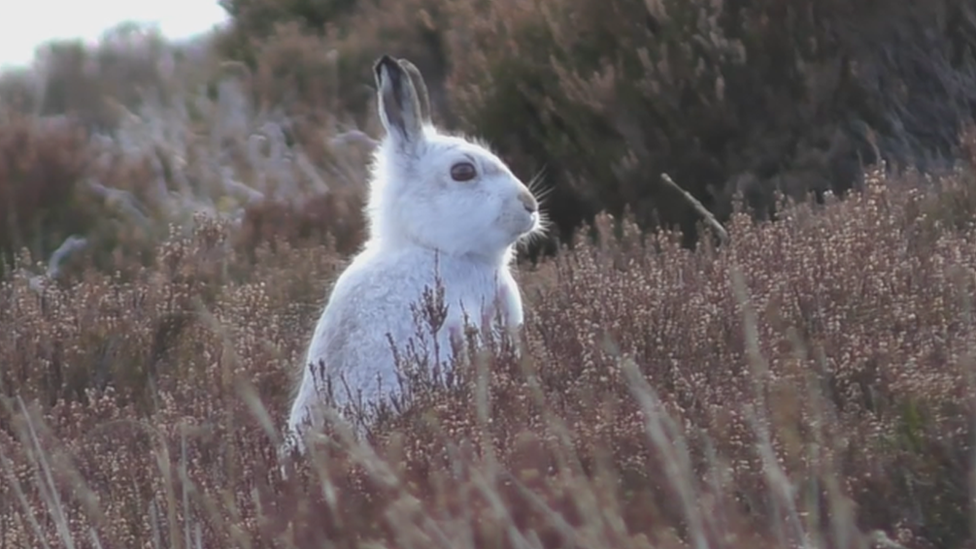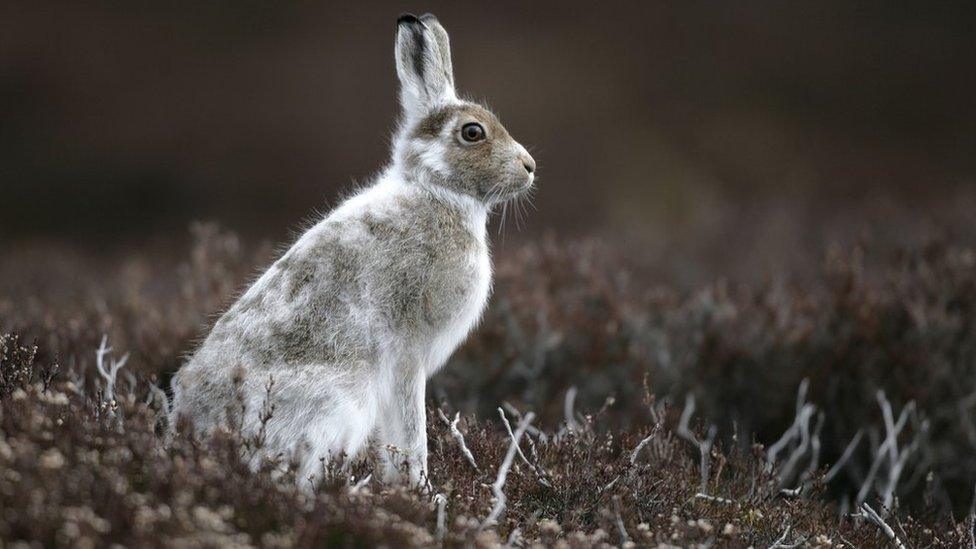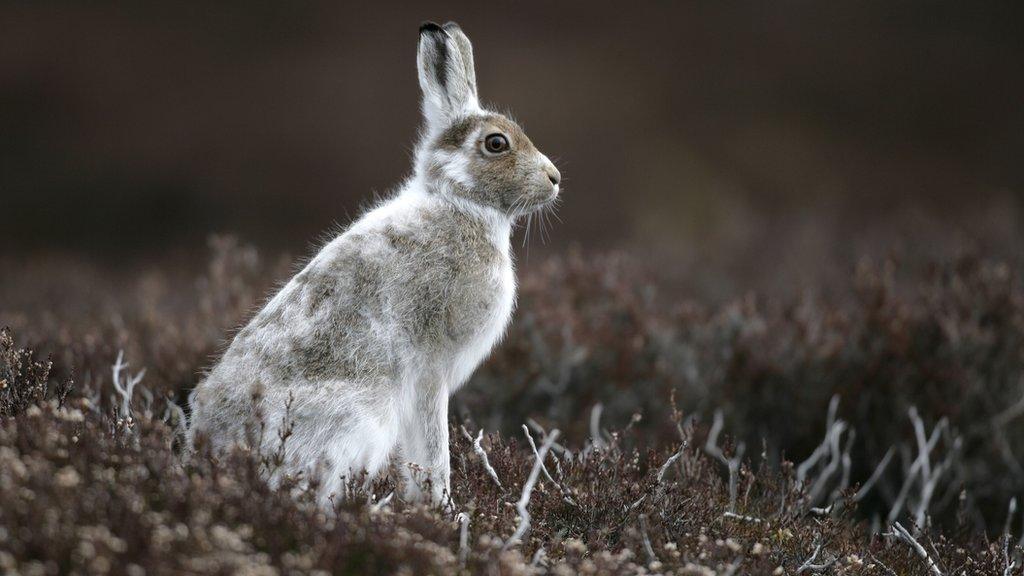MSPs ban unlicensed culling of mountain hares
- Published

MSPs have voted to ban the unlicensed culling of mountain hares and make them a protected species.
Concerns had been growing about the practice but gamekeepers insist Holyrood has made a "grave mistake" and the move is bad for land management.
Ecologists say numbers have been in decline since the 1950s with Scottish government figures suggesting about 26,000 hares are killed every year.
The ban is an addition to a new law to increase sentencing for wildlife crime.
Under the new Animals and Wildlife Bill passed by MSPs, the worst animal cruelty offences will be punishable by up to five years in prison, an unlimited fine or both.
MSPs passed by 60 votes to 19 the amendment from Green MSP Alison Johnstone which won greater protection for mountain hares.
She said she was delighted the government had "given into pressure to protect this iconic native species".
'Impossible to ignore'
More than 22,000 people signed a petition in support of the change - but the Greens came under fire for not having proposed the measure earlier in the parliamentary process.
Rural Affairs Minister Mairi Gougeon said she was "not happy with the manner in which this amendment has been advanced".
But she added that it "would mean there would no longer be an open season for mountain hares, control of their numbers would need to be done under licence all year round, for permitted purposes, such as preventing serious agricultural damage".
The minister added that this "strikes an appropriate balance between the interests of those involved in land management and protecting an iconic Scottish species".
Ms Johnstone insisted the "sheer volume of interventions" in support had made her amendment "impossible to ignore".

Scotland has approximately 135,000 hares, with most of them found on grouse moors
Max Wiszniewski, of the Revive group pressing for grouse moor reform, added: "Iconic mountain hares are in decline and only legal protection will prevent their numbers falling. Today common sense has prevailed and the Scottish Parliament has voted overwhelming to pass this amendment.
"There is a circle of destruction that surrounds grouse moors and this includes the mass killing of the iconic mountain hare."


This is a controversial move executed in an equally controversial way.
Ecologists will point to a study by the late Dr Adam Watson, much renowned, whose meticulous records demonstrate that the populations have plummeted.
But land managers say that is at total odds with their own observations, and that a lack of control will harm the species.
The views are polarised and to come down on one side with a ban is provocative enough, but to do it without proper parliamentary scrutiny is another level.
The last minute amendment to legislation was criticised across the chamber but when it came to the vote it was passed.

Mountain hares are Britain's only native hare and may have been here since the last ice age.
A report published in 2018 said the number of mountain hares on moorland in the eastern Highlands is at less than 1% of their levels in the 1950s.
The study was published in the Journal of Applied Ecology and found that numbers fell annually by an average of almost 5% until 1999 when the decrease accelerated but its findings were disputed by moorland managers.
More mountain hares have been counted on moorland managed for grouse shoots than unmanaged moorland, gamekeepers and landowner groups claimed last year.
Alex Hogg, chairman of The Scottish Gamekeepers Association, said the Holyrood vote was a "grave mistake".
He added: "This is a bad law, made by people it will not impact upon.
"The views of the rural working people of the land have been ignored, here. The system has failed them."
'Mountain hares are thriving'
Sarah-Jane Laing, chief executive of Scottish Land and Estates, added: "These changes will not help Scotland's wildlife, which is the prime concern of gamekeepers and land managers.
"Mountain hares are thriving on Scotland's moors and their fate will not be improved by this vote. There is clear evidence that the control of hares helps combat tick and Lyme disease and protect plants and young trees.
"Balanced wildlife management is key to meeting Scottish government targets on biodiversity and tree planting. It was disappointing that this seems to have disregarded by so many at Holyrood."
Other aspects of the bill passed by MSPs include an increase in the penalties for the stealing, transporting or being in possession of wild bird eggs to five years' imprisonment, an unlimited fine or both as a result of a conviction on indictment.
Changes to the penalties for offences which upset or destroy the nests of wild birds were also approved in the vote at the Scottish parliament.
- Published14 August 2018

- Published11 November 2019
